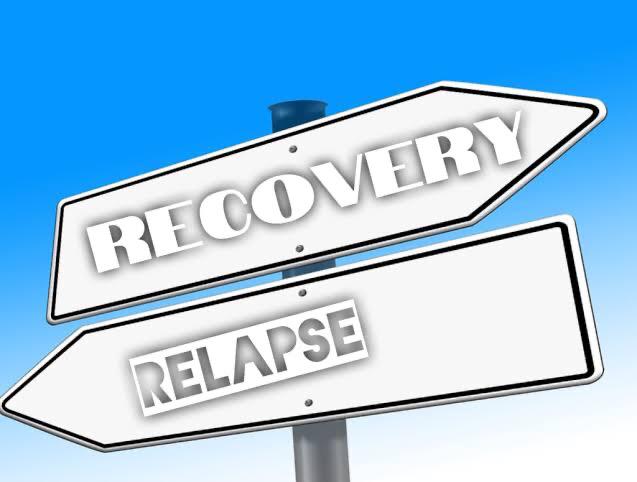by
Dr G Om Prakasham
Chairman, Lotus Wellness
Consultant Cardiac Surgeon
A relapse is when a person returns to using drugs or alcohol after a period of sobriety. Relapses are most common in the first 90 days of sobriety and according to the National Institute on Drug Abuse (NIDA), relapse rates while in recovery are 40 to 60%.
There are 3 stages of a relapse: emotional, mental and physical.
The emotional relapse begins way before a person actually picks up a drink. In fact the person may not even be thinking about drinking, however some of the self-care starts to suffer. They may be bottling up emotions, isolating, not getting enough support, focusing on others and have poor eating and sleeping patterns.
During the mental stage a person may start having cravings, or may be minimizing the consequences of ther past use. They may start bargaining and planning for instances where it would be ok to drink or ways that they may be able to control their drinking better. They may have already started looking for opportunities to drink in secret and plan the relapse.
The physical stage of a relapse is when a person actually begins drinking. There are two parts of relapse: first, there is a lapse, which constitutes the initial drink or two at which time some are able to stop and not continue drinking. Then there is the relapse which is a return to uncontrollable use without regard for stopping.
Most relapses are relapses of opportunity, when a person has a window in which they feel that they may not get caught. Many relapses are caused by triggers—some sort of internal or external stimulus that causes a person to want to use alcohol or drugs again.
One of the most important steps to identifying triggers and managing them in healthy ways is to be self-aware. Being self-aware allows individuals to understand the driving force behind their behavior, or the trigger before and after they react.
Common Triggers:
• Hungry, Angry, Lonely, or Tired (HALT)
• Depression
• Anxiety
• Stress
• Insomnia
• Peer Pressure
• Negative Emotions
• Poor Self-Esteem
• Withdrawal symptoms
• Relationship issues
• Certain physical settings, sights, and smells
• Being sick or chronic pain
• Times of celebration
• Negative mindset/self-pity
Often triggers come on suddenly and without a warning. It is then very important to act quickly, before the mind has time to ruminate in the triggering thoughts. Here are some quick coping skills for dealing with triggers:
Deep Breathing Exercises:
• Inhale for 4 seconds
• Hold for 4 seconds
• Exhale for 6 seconds
Progressive Muscle Relaxation:
Hold tension for 10 seconds then release.
• Curl your toes
• Point your feet up
• Make fists
• Scrunch your face
Mental Exercises:
• Count backwards from 100 by sevens.
• Write your name using your left hand
• Read something backwards
• Name all the objects you see
• Name all the movies you have seen
Grounding:
• Name 5 things you see
• Name 4 things you hear
• Name 3 things you smell
• Name 2 things feel
• Name 1 thing you taste
Challenging Irrational Thoughts:
• Is my thought based on facts or feelings?
• How would my best friend see this situation?
• How likely is it that my fear will come true?
• What is most likely to happen?
• If my fear comes true, how can I deal with it?
• Will my feelings matter in a week? Month? Year?
Sobriety is more than just quitting alcohol. It is the ongoing process of embracing an alcohol-free life and improving yourself. When you become sober, your body and mind can experience many changes. At times, these changes can be difficult, which may cause you to question if it’s worth it. Though it may be challenging at times, here are some tips to help you stay sober and avoid relapsing.
• Join a self-help group, attend meetings regularly, and actively participate. Studies have shown that individuals who received help and participated in a peer support group such as Alcoholics Anonymous (AA) were less likely to relapse.
• Be completely honest with those in your recovery circle, including family members, doctors, counselors, self-help group participants, and sponsors.
• Avoid people, places, or things that are tied to previous alcohol use.
• Surround yourself with positive and supportive people.
• Eat healthy meals regularly. Include foods with Omega-3 fats like salmon, walnuts, and soybean.
• Get some quality sleep. Insomnia, sleep disturbances, and fatigue are commonly associated with both substance use and withdrawal. Not getting enough shuteye can be a potential trigger for relapse, too.

